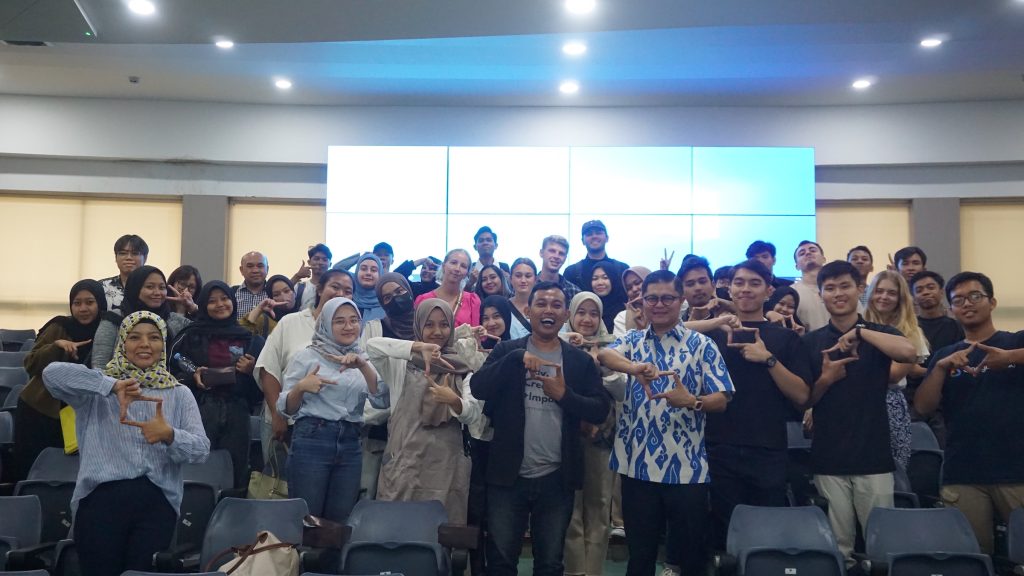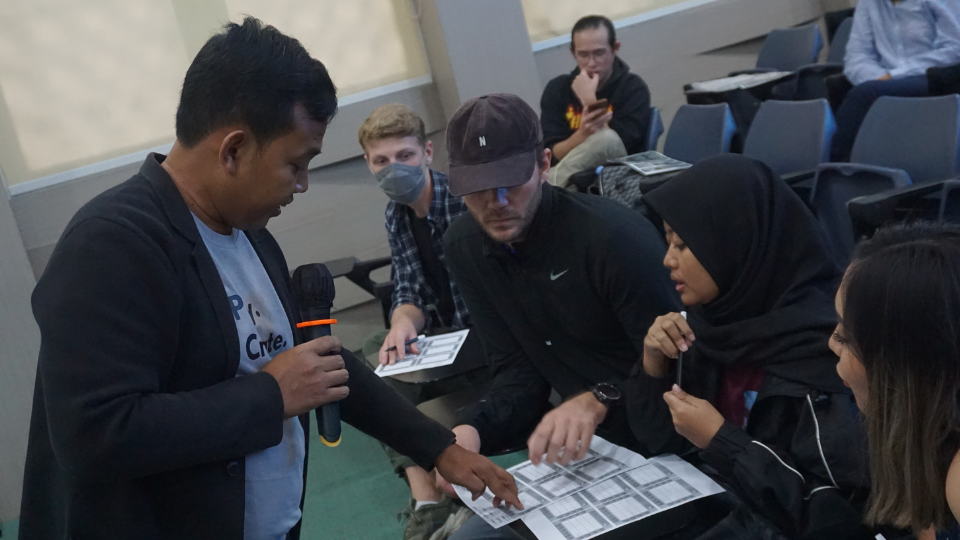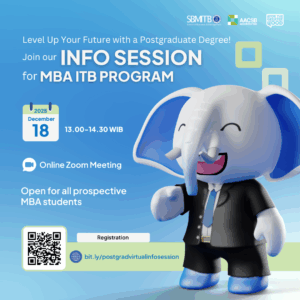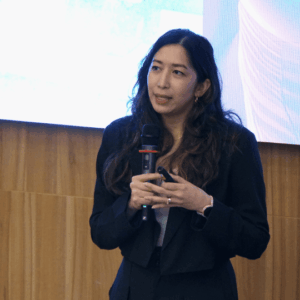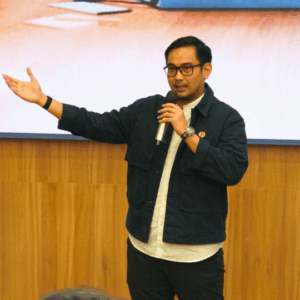The topic of climate change began in 1985 when news circulated of the discovery of a hole in the ozone layer in Antarctica, causing an uproar worldwide.
In 1990, the United Nations formed a treaty to deal with climate change. This commitment continues today with the Paris Agreement, which covers the topics of climate change mitigation, adaptation, and finance.
In line with the global efforts to overcome climate change, SBM ITB, in collaboration with the Family of Management Students (KMM), held a guest lecture entitled “The Sinking of Our City: Raising Awareness and Preparing Future Talent” in the Organizational Development course and Organizational Learning at the SBM ITB Building Auditorium, Bandung, on Wednesday (20/9). The guest lecture was delivered by Eko Nugroho, CEO of Kummara, a game designer and consultant in Indonesia, and Dr. rer. pol. Achmad Fajar Hendarman., S.T., M.S.M., a lecturer and head of the SBM ITB Management Study Program.
The lecture is structured into two parts. In the first section, Eko presented an additional perspective on the role of games and their connection to the learning process. Eko emphasized that humans embark on learning journeys from early childhood driven by curiosity, creativity, and courage. However, this innate drive gradually diminishes as people age, impeding the learning process.
According to the World Economic Forum’s report, talent categories are classified into three groups. When these categories are combined, they collectively form the skill competencies required for the future: Abilities and Skills, Attitudes and Values, and Knowledge and Information. Both talent categories, Abilities and Skills, and Attitudes and Values can be cultivated through game-based learning.
In the second session, 15 students became active participants in a game divided into four roles: financial division, data analyst, board of directors, and operational division. Moderated directly by Eko, all active participants were part of a delivery service company.
The game is quite easy. All roles must be able to work together to deliver packages according to the instructions distributed in five different rounds. Eko closed the session by explaining that the key to implementing sustainability management involves good communication and convincing the surrounding environment to achieve the sustainability goals of joint efforts. In addition, sustainability no longer involves additional costs but reduces costs and increases profits.
